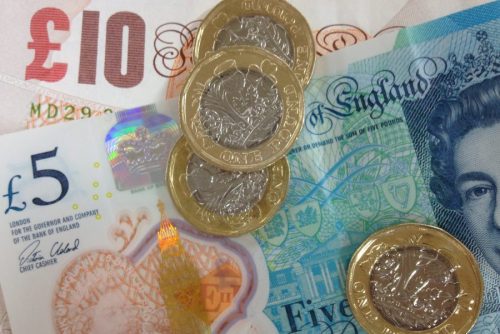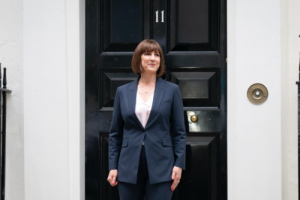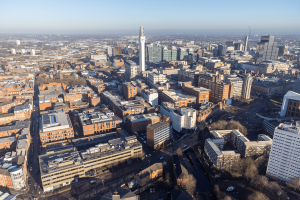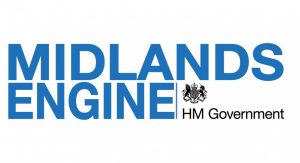Inflation falls to single figures for first time in eight months

The inflation rate has fallen below ten per cent for the first time in eight months – according to the latest Office for National Statistics figures.
The rate at which prices rose in April compared to a year ago was 8.7 per cent.
Despite the good news there ae still warnings that interest rates could continue to rise in the months ahead.
Chancellor Jeremy Hunt welcomed the news but added a warning to householders.
He said: “The IMF (International Monetary Fund) said yesterday we’ve acted decisively to tackle inflation but although it is positive that it is now in single digits, food prices are still rising too fast.
“So as well as helping families with around £3,000 of cost of living support this year and last, we must stick resolutely to the plan to get inflation down.”
The caution was echoed by Nicholas Hyett an investment analyst at the Bristol based investment firm Wealth Club.
He said: “As we lap the dramatic spike in energy prices following the Russian invasion of Ukraine, some decline in annualised inflation was inevitable. As a result, year-on-year price growth is now out of double figures – albeit still eye watering at 8.7 per cent and higher than economists had hoped.
“However, the devil’s in the detail. The energy shock may be fading, but month-on-month inflation is higher in April than it has been at any time since last October as communication, transport, alcohol, tobacco and food prices continue to rise.
“Core inflation, the kind of price rises that are created by the UK domestically, rather than forced upon the country by global energy and food prices, is at the highest it’s been in over 20 years.
“All this means it remains too early to celebrate victory in the Bank of England’s war against inflation. Today’s numbers probably strengthens the case for higher interest rates at the next MPC meeting, and that means the pain will continue for consumers and businesses alike.”
George Lagarias chief economist at Mazars said headline inflation remains uncomfortably high and increasingly dynamic.
He warned: “This could lead to more than the two rate hikes the market, perhaps optimistically, expects. Until the Bank of England sees evidence of the vicious price-wage cycle breaking and demand conditions sufficiently tame, we should expect increasingly tighter credit conditions and pressures on consumers and businesses.”
Neil Rudge, head of enterprise at Shawbrook bank, said the fall in inflation will offer some signs of hope to SME owners.
He added: “SMEs have shown remarkable resilience in an economic climate characterised by low-growth and increasing borrowing costs which has disrupted growth plans and stifled expansions. Of course, challenges will remain; wage inflation and a difficult labour market continue to impact bottom-lines, and demand in some sectors is yet to see an uptick.
“However, this news will be a boost to confidence, and we’d expect to see increasing demand from SMEs exploring growth opportunities. While short-term many SMEs will still be managing low demand, challenging supply chains and potentially payment delays, long-term the outlook is optimistic and therefore they will need flexible yet stable and reliable solutions to fund their strategic initiatives. “









